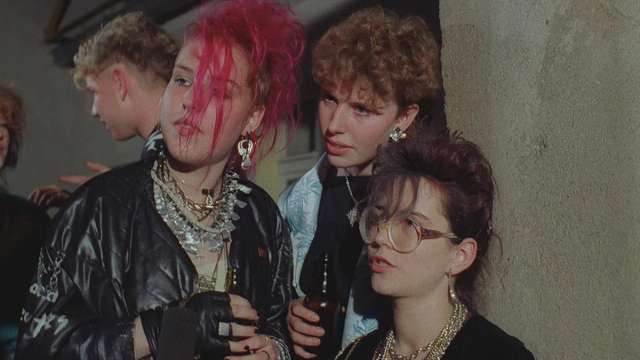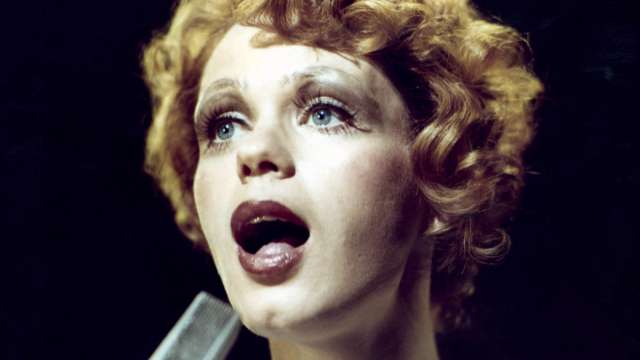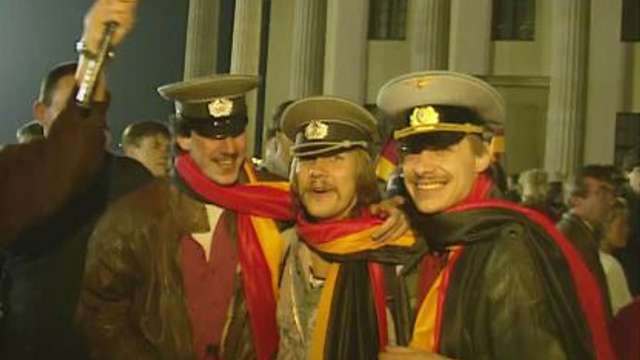
Creating diversity
Diverse provenances enrich our understanding of the past and promote cultural diversity in the world of film. Each source contributes its unique history and perspective, providing a multifaceted view of historical and cultural events.
The DEFA Foundation is an incorporated non-profit foundation. It was established by the Federal Government of Germany on December 15, 1998. DEFA film stocks, considered an important part of Germany's cultural heritage, were assigned to the DEFA Foundation as capital for Foundation operations.
Deutsche Film AG (DEFA) was the film production company of the German Democratic Republic (GDR). It was founded in Potsdam-Babelsberg in 1946 and had several studios. By 1992, it had produced some 2,500 newsreels and periodicals, 2,000 documentaries, 950 animated films, 730 feature films and 450 fictional short films as well as 6,700 dubbed versions of foreign films.
DW (Deutsche Welle) is Germany's international broadcaster. As an independent media outlet, they provide unbiased news and information in 32 languages around the world so that people can form their own opinions.
At the end of the 1980s, RIAS acquired the archive of filmmaker Ernst Wollenberg (production period: 1950-1981).

The German film production company Cinecentrum was founded in 1962 as a subsidiary of Studio Hamburg. The company produces documentaries and fictional formats for public and private TV broadcasters in Germany. Since 2023 Cinecentrum is part of Doclights GmbH.

The Historiathek is a film archive on historical topics. It combines film material of the 20th century that has been digitised in high resolution (HD or 2K) in various US archives.

The Katholische Filmwerk (KFW) was founded in Rottenburg near Stuttgart in 1953. The main purpose of this foundation was to promote Catholic film production in the individual dioceses of the Federal Republic of Germany (FRG) and to provide a range of films for Catholic educational and community work. To this end, as many church film venues as possible were to be registered, suitable films from various distributors, including the screening rights, were to be acquired and accompanying material for film screenings was to be compiled. The selection of films was based on Christian values.
The Katholische Filmwerk produced the Catholic monthly newsreel "Zeitschau"/"Spiegel der Zeit" from 1953 to 1962.

rbb media GmbH was founded in 1955 as a subsidiary of Sender Freies Berlin (SFB). The merger of SFB with Ostdeutscher Rundfunk Brandenburg (ORB) led to the creation of rbb in 2003 as a public service broadcaster for the states of Berlin and Brandenburg. One of the tasks of rbb media is the distribution of the GDR television programme, which is kept in the German Broadcasting Archives (DRA). The DRA has been archiving and documenting a significant part of Germany's audiovisual and audio heritage since 1952. This includes, among other things, all radio broadcasts since 1929 as well as the holdings of the GDR's Deutsches Fernsehfunk/Television from the period between 1952 and 1991.

The Vietnam Film Institute (VFI) preserves Vietnam's audiovisual heritage. This includes feature films, newsreels, documentaries and animated films produced by Vietnam's state controlled film studios, from the 1940s to the present day.
The Vietnam Film Institute was founded in 1979 by the Vietnamese government. It was originally named the Vietnam Film Documentation Institute. The aim of this foundation was to collect and preserve all films produced by state institutions. This includes above all documentaries and news-reels produced on behalf of the Communist Party during the Vietnam War. As Vietnam's national film archive, the VFI preserves not only documentaries but also feature films and animated films, raw footage and a wide variety of documents accompanying films.
At its headquarters in Hanoi, the VFI today holds Vietnamese and foreign films on more than 80,000 film reels (16mm and 35mm) plus about 20,000 videotapes, which are gradually being restored and digitised. The two film studios of the Vietnam Film Institute, the Ngoc Khanh Film Studio and the Saigon Film Studio, also document important political, cultural and economic events to this day and are constantly expanding the VFI's film holdings.

In 1991, former filmmakers from the DEFA founded the "Um Welt Film Produktionsgesellschaft" in Berlin. Among the founders was Joachim Tschirner, who had been a director and artistic associate at the DEFA Studio for Documentary Films until 1991. The documentaries produced by UM WELT FILM mainly focus on social, ecological, cultural, and historical topics from around the world. Starting in 2014, director and author Joachim Tschirner became the sole shareholder and managing director of UM WELT FILM. The production company was dissolved in 2022.






